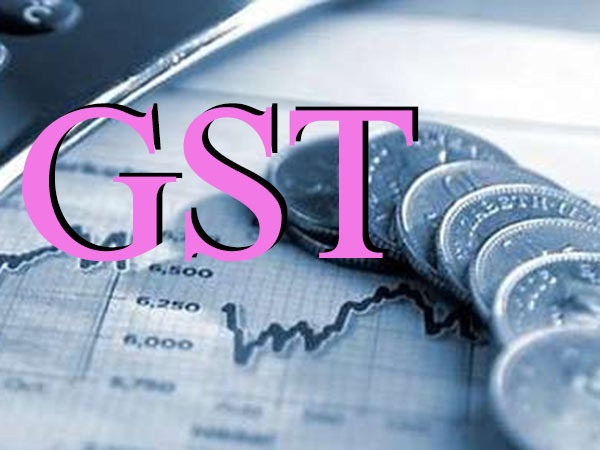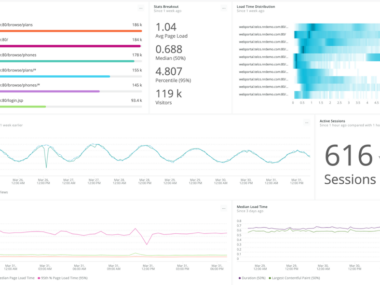Union Finance Minister Nirmala Sitharaman on Tuesday released a list of items that will not attract any GST when sold loose, and not pre-packed or pre-labeled.
Defending the imposition of 5% GST on food articles such as cereals, rice, flour, and curd, which are pre-packaged and labeled, FM Sitharaman said that it was a unanimous decision of the GST Council last month in which even non-BJP ruled states were present.
Sitharaman further said the council recommended reconsidering the approach for the imposition of GST on specified food items like pulses, cereals, flour, etc.
Sitharaman said that certain items including pulses/daal, wheat, rye, oats, maize, rice, atta/flour, suji/rawa, besan, puffed rice, curd/lassi when sold loose and non-pre-packed or pre-labeled, will not attract any GST.
What is the GST Council and why is it important?
The GST Council is a constitutional body that was formed to manage and oversee the implementation of the Goods and Services Tax (GST) in India. It is comprised of representatives from all states and territories, as well as members of the Central Government. The council meets regularly to discuss issues related to GST, including tax rates, exemptions, and rules.
The importance of the GST Council cannot be overstated. As it is responsible for making decisions on various aspects of the GST regime, its recommendations have a significant impact on businesses and consumers across India. For instance, recently it made an announcement stating that no GST will be charged on 14 items such as medical oxygen, pulse oximeters, etc which would reduce prices for customers. By constantly monitoring how the tax system affects different sectors of society, The Council ensures that taxation policies are fair and reasonable.
The decisions taken by the GST Council are aimed at simplifying tax compliance procedures while also increasing revenue collection for both central and state governments. This has helped streamline businesses’ operations while also reducing their overall costs. Therefore it can be concluded that The GST Council plays a crucial role in maintaining stability within India’s economy through fair taxation policies.
List of 14 items that will not be charged with GST: Cars, education, healthcare, housing, food, clothes, entertainment, and digital services.
The Goods and Services Tax (GST) Council has announced that 14 essential items will not be charged with GST. Among these items are cars, education, healthcare, housing, food, clothes, entertainment, and digital services. This is great news for the Indian public as it will help reduce the overall cost of living for many households.
The decision to exempt these essential items from GST was made to ensure that they remain affordable to all sections of society. The government believes that this move will alleviate some of the financial burden faced by citizens who were previously paying additional taxes on these goods and services. Overall this decision is expected to have a positive impact on the economy as it encourages more spending by consumers.
In conclusion, the GST council’s decision to exempt these 14 essential items from GST is a welcome relief for many Indian households who were previously burdened with additional taxes on their daily essentials. It is hoped that this move will encourage more spending by consumers and stimulate economic growth in India.
No GST will be levied on these 14 items when sold loose: FM Sitharaman
The Goods and Services Tax (GST) Council has announced that no GST will be levied on 14 items when sold loose. These items include cereals, pulses, flour, vegetables, fruits, salt, and sugar. The decision was taken in a recent meeting chaired by Finance Minister Nirmala Sitharaman.
This move is expected to provide relief to small traders who sell these commodities in an unbranded or loose form. It will also reduce the compliance burden for businesses as they do not have to pay taxes on these items anymore. This will lead to a decrease in the prices of these essential commodities and benefit consumers.
Overall, this decision by the GST council is likely to boost the agricultural sector as it encourages farmers to produce more crops that can be sold without any additional tax burden. It also aligns with the government’s aim to make necessities affordable for all sections of society.
GST Rates in 2023 – List of Goods and Service Tax Rates, Slab & Revision
The GST council has recently announced that no GST will be charged on 14 items, including dried tamarind, dried kidney beans, handloom dari (carpet), and Khali dona. This update comes as a relief to consumers who purchase these items regularly.
However, it is important to note that the GST rates for other goods and services may undergo revision in 2023. The current slab rates of 5%, 12%, 18%, and 28% are likely to remain the same for most products. However, there may be some changes in rates for specific goods or sectors based on government policies and economic conditions.
This information makes it important for businesses to stay updated with the latest GST revisions so they can make informed decisions regarding pricing strategies and tax compliance. It is also essential for consumers to keep track of any changes in the GST rates applicable to their purchases to avoid any confusion or unexpected expenses at the time of billing.
Types of GST Rates and GST Rate Structure in India
The GST (Goods and Services Tax) Council in India has classified all goods and services under five broad categories with different tax rates. These categories are 0%, 5%, 12%, 18%, and 28%. The zero percent category includes items like fresh meat, fish, vegetables, fruits, bread, eggs, etc. These essential items are not taxed to ensure that they remain affordable for everyone.
The next category is the lowest rate of 5% which includes items like tea, coffee, edible oils, life-saving drugs, etc. The third category is at a rate of 12% which includes goods such as frozen meat products, butter, and cheese among others. Further up is the fourth category at a rate of 18% which covers most goods including fuel engines, cameras, and industrial cables.
The highest tax bracket stands at a rate of 28%. This applies to luxury items such as high-end cars or motorcycles as well as tobacco products like cigarettes. It also includes other luxurious goods like perfumes and premium watches. Overall the GST rates in India have been designed to be more uniform across states while ensuring that necessary foodstuffs remain relatively inexpensive for consumers from all walks of life.
GST Rate Revision in 45th GST Council Meeting
In the 45th GST Council Meeting, it was announced that taxes on certain essential items would be reduced to lessen the burden on consumers. The council stated that no GST will be charged on 14 items, including medical oxygen, pulse oximeters, hand sanitizers, and temperature check equipment. Additionally, the tax rate for ambulances was reduced from 28% to 12%.
This decision by the GST Council was aimed at providing relief to people during the ongoing COVID-19 pandemic. With many individuals struggling financially due to job losses and a slowing economy, this move by the council is expected to ease their financial burden when purchasing essential goods.
Furthermore, some of these items are critical in fighting COVID-19 and other diseases. Therefore reducing taxes for such products can help ensure they reach those who need them most without being deterred by high prices or taxes. Overall, this revision in GST rates is a welcome move towards helping individuals cope with these challenging times while also supporting healthcare providers in delivering quality care services without any financial strain.
Meaning of GST rates
The Goods and Services Tax (GST) was introduced in India on July 1, 2017, to streamline the country’s indirect taxation system. The GST rates are divided into four slabs – 5%, 12%, 18%, and 28%. Recently, the GST Council announced that no GST will be charged on fourteen items. These include medical-grade oxygen, oxygen concentrators, testing kits for COVID-19, PPE kits, and drugs like Remdesivir.
The decision to exempt these essential items from the GST is a welcome move as they are critical in fighting the ongoing pandemic. It will help reduce prices and make them more accessible to those who need them. However, it is important to note that some states may still impose taxes on these items despite the council’s decision.
Overall, understanding the meaning of GST rates is crucial for businesses and individuals alike. It helps determine how much tax needs to be paid based on different goods or services purchased or sold. The recent exemption of certain essential items highlights the importance of having a flexible and adaptive tax system during times of crisis such as this pandemic.
Tell me the GST rate in India 2023.
The GST or Goods and Services Tax rate in India is subject to change based on the decisions of the GST council. As for 2023, there is no official announcement yet regarding any changes in the current GST rate. However, it’s important to note that some items are exempted from GST.
Recently, the GST council announced that no GST will be charged on 14 items such as medical oxygen, oxygen concentrators, and ventilators until September 30th, 2021. This decision was made in light of the ongoing COVID-19 pandemic and its impact on healthcare resources. It’s also worth noting that some essential goods such as food items have been kept under a lower tax bracket by the government.
Overall, keeping up with any potential changes to the Indian GST rate is important for businesses operating within India or those planning to expand their operations into India. It’s also important to understand which items are exempted or fall under a lower tax bracket to make informed financial decisions.
GST rates for goods and services with HSN Chapters
The Goods and Services Tax (GST) Council recently announced that no GST will be charged on 14 essential items, including COVID-19 vaccines, oxygen concentrators, and related medical equipment. This move aims to provide relief to those affected by the pandemic. The GST rates for goods and services are categorized under HSN (Harmonized System of Nomenclature) chapters, which help in the systematic classification of goods.
The GST rate for different products varies from 0% to 28%, depending on their categorization under HSN chapters. For instance, milk is exempted from GST, whereas processed food items fall under the higher tax bracket. Similarly, basic healthcare services like doctor consultations and diagnostic tests have been kept outside the purview of GST to make them more affordable for consumers.
In conclusion, understanding HSN chapters is crucial in determining the applicable GST rate for particular goods or services. The recent exemption of 14 essential items from GST highlights how policymakers can leverage this system to provide relief during challenging times while ensuring a steady stream of revenue through taxes on other non-essential goods/services.
GST rate changes from 1 January 2022
The GST Council has announced that from 1st January 2022, the Goods and Services Tax (GST) rate will be revised on certain goods and services in India. The council has decided to cut taxes on mass-consumption products while increasing them on luxury items, such as tobacco products, cigarettes, and aerated drinks. This move is aimed at boosting consumer demand and reviving the Indian economy which was hit hard by the COVID-19 pandemic.
As part of the new changes, a total of 14 items will not attract any GST. These include medical-grade oxygen, vaccines for COVID-19, oxygen concentrators, pulse oximeters as well as temperature-checking devices among others. The decision to remove GST from these essential items is seen as a relief measure for individuals amidst rising healthcare costs in India.
The revised rates are expected to have an impact on various sectors including FMCG (Fast-Moving Consumer Goods), automotive businesses, and other industries that depend heavily on mass-consumption goods. While the reduced tax rate will benefit consumers by making essential commodities more affordable; companies selling luxury items may face a decline in sales due to increased taxation.
GST Rate Changes at 48th GST Council Meeting
The 48th GST Council Meeting has come up with some significant changes in the GST rates. The meeting concluded that no GST will be levied on 14 essential items, including medical-grade oxygen, ventilators, pulse oximeters, and COVID-19 testing kits. The council aims to support the healthcare sector amidst the ongoing pandemic.
In addition to this decision, the council also decided to reduce the GST rate on various other items such as hand sanitizers and temperature-check equipment. The tax rate on hand sanitizers has been reduced from 18% to 5%, while that of temperature-checking devices has been reduced from 18% to nil.
The reduction in tax rates is expected to provide relief to consumers during these challenging times. It is also expected to boost demand for these goods and stimulate economic growth. Overall, the decisions taken by the GST Council are steps towards increasing the accessibility and affordability of essential goods for all sections of society.
Conclusion: The GST council has decided to exclude these items from the GST.
The GST Council has recently announced that a total of 14 items will be excluded from the Goods and Services Tax (GST). These items include critical medical equipment such as oxygen concentrators, medical-grade oxygen, and pulse oximeters. Additionally, essential medicines such as Remdesivir, Tocilizumab, and Amphotericin B have also been exempted.
This decision by the GST council is expected to bring some relief to people in India who are struggling to cope with the COVID-19 pandemic. Medical equipment and medicines have become scarce due to the surge in demand caused by an increase in COVID-19 cases. The exemption of these items from GST will make them more affordable for those who need them the most.
It’s worth noting that this isn’t the first time that the government has taken steps to ease the financial burden on individuals during these difficult times. Previously, they had waived fees for certain services related to passport applications and extended deadlines for tax filings. The exclusion of these 14 items from GST is yet another attempt by the government to support citizens as they navigate through this pandemic.
Also Read: Dell XPS 15 Touch Screen Review: Still The Best Only Faster















